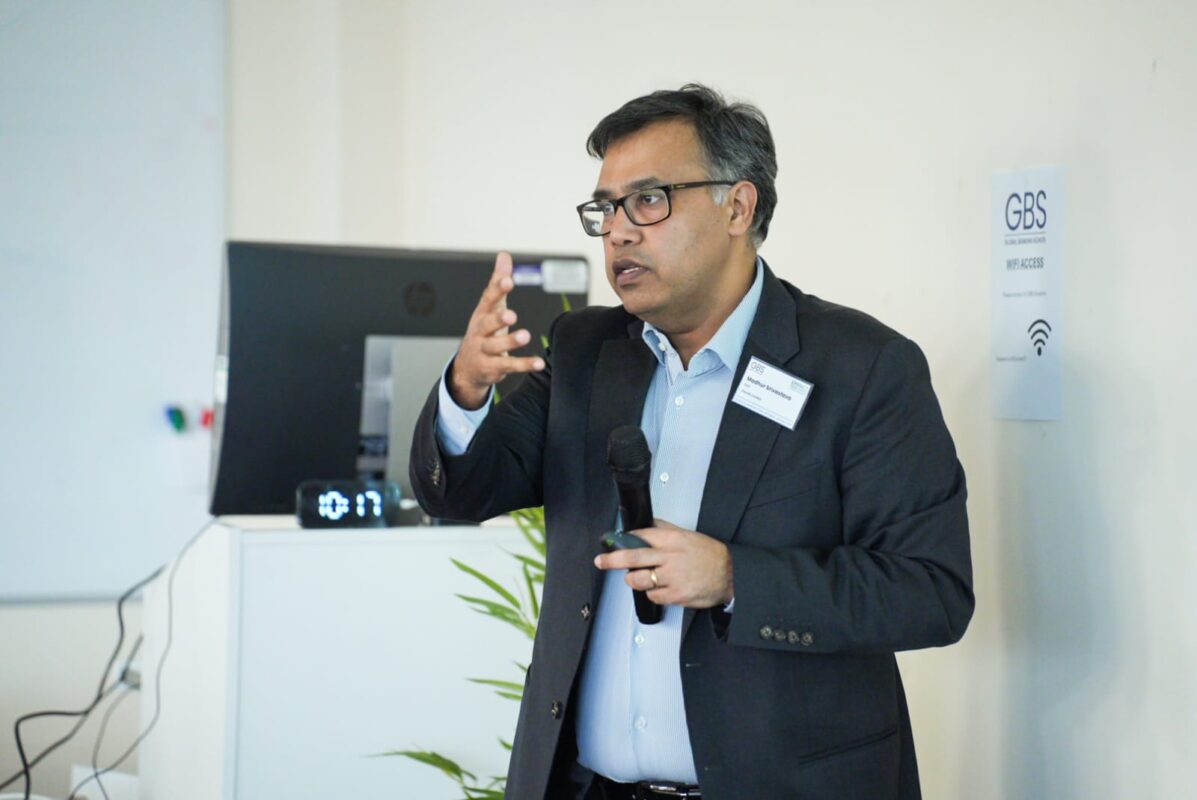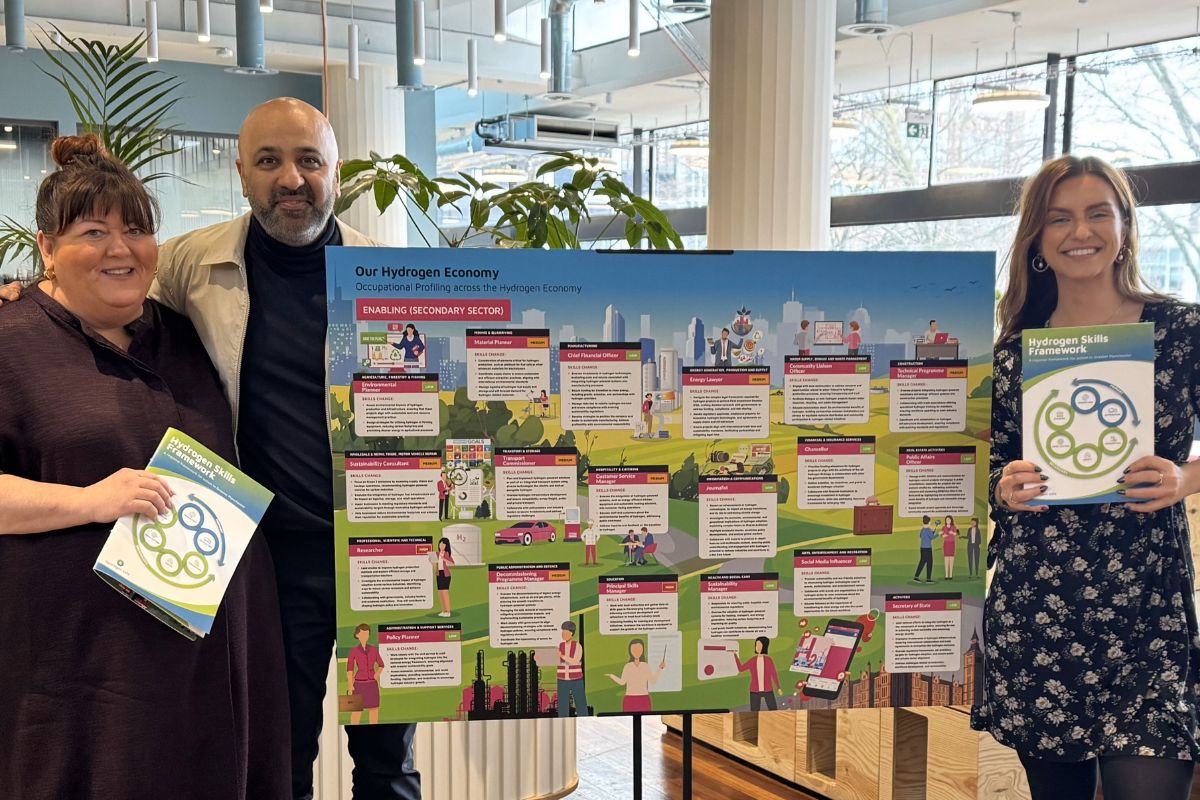#SpendingReview2019 – Treasury should prioritise social mobility by better funding further education

CO-CHAIRS OF APPG ON SOCIAL MOBILITY SET OUT KEY SPENDING PRIORITIES
The Treasury should prioritise social mobility in next week’s Spending Review – including by increasing spending on the further education sector – according to the Chair and Co-chair of the APPG on Social Mobility, Justin Madders MP and Baroness Tyler of Enfield.
In a strongly worded letter to Chancellor of the Exchequer, the Chairs of the All-Party Parliamentary Group (APPG) on Social Mobility set out a series of policies – from birth to the workplace – to improve opportunities for disadvantaged young people. They call on the new government to act now to boost low levels of social mobility across the country.
The letter highlights how cuts to the further education sector has disproportionately affected young people from disadvantaged backgrounds. According to the group, increasing spending in this area could ensure further education and apprenticeships become effective vehicles for social mobility.
As recommended by the Social Mobility Commission in their most recent State of the Nation report, the co-chairs are calling on the government to introduce a Student Premium of at least £500 per year for disadvantaged 16-19-year olds. This would be the first stage of repurposing the pupil premium to have a stronger focus on social mobility, as recommended by the APPG in their Closing the Regional Attainment Gap report.
The co-Chairs are also calling on the government to focus on spending in the early years, by ringfencing funding for children’s centres and ensuring they are able to reconnect with their original purpose of providing support to disadvantaged 0-5 year olds and their families. They also want to see greater investment in improving qualifications for the early years workforce as a whole, including by giving early years teachers an increase in pay, conditions and status.
Life chances should not be limited by background.
In the letter, Justin Madders MP (Labour) and Baroness Claire Tyler (Liberal Democrat), co-chairs of the APPG on social mobility, write:
“Social mobility in the UK has stagnated. From birth to the workplace, a young person’s life chances are heavily shaped by how much their parents earn and where they grow up.
“Our research has highlighted serious inequalities from early years through to the workplace. It is critical that the new government acts now to change this and stop the tragic waste of talent that blights both our society and economy.
“While the main lever for improving social mobility is through education opportunities, it is not enough to focus on this in isolation. We need a cross-departmental strategy that combines big picture thinking with genuine local understanding.
“We hope the new government take this opportunity to tackle the injustices that are currently afflicting both our society and economy.”
James Turner, CEO of the Sutton Trust, said:
“The APPG is right to call on the Treasury to put social mobility at the heart of their spending plans. It is a critical moment for the new government to act and show their commitment to improving opportunities for disadvantaged children and young people across the country.
“We particularly welcome their calls to prioritise further education by introducing a student premium of at least £500 per year for disadvantaged 16-19-year-olds. Given that twice the number of disadvantaged 16-to-18-year-olds are in FE compared to school sixth forms, the sector has the potential to be an effective vehicle for social mobility, if properly funded.”
KEY POLICY ASKS FROM THE APPG ON SOCIAL MOBILITY
EARLY YEARS
- Give early years teachers Qualified Teacher Status with the increase in pay, conditions and status this would entail.
- Invest in improving qualifications for the workforce as a whole.
- Ringfence funding for children’s centres and complete the review of the programme.
SCHOOLS
- Support schools in social mobility coldspots to offer a more generous financial incentive to encourage teachers to take up positions in those schools.
- Repurpose the pupil premium into a ‘social mobility premium’ which can be used on teacher recruitment and retention.
FURTHER EDUCATION
- Significantly increase spending on further education.
- Introduce a Student Premium of at least £500 per year for disadvantaged 16-19-year-olds.
HIGHER EDUCATION
- Restore maintenance grants for students from lower socioeconomic backgrounds to at least pre-2016 levels plus inflation.
THE WORKPLACE
- Ringfence funding for interns in Westminster to such a level that all interns can be paid at least the National Minimum Wage, and ideally the London Living Wage.
The All-Party Parliamentary Group on Social Mobility is a cross-party group of MPs and peers. Formed in 2011 to discuss and promote the cause of social mobility; to raise issues of concern and help inform policy makers and opinion formers. We seek to investigate the challenges for policy makers to ensure life chances are not limited by background.
The Sutton Trust provides secretarial support to the All-Party Parliamentary Group on Social Mobility and helped produce this report and organise evidence hearings.
All Party Parliamentary Group on Social Mobility Letter in full
The Rt Hon Sajid Javid Chancellor of the Exchequer HM Treasury
1 Horse Guards Road
SW1A 2HQ
28th August 2019
Dear Chancellor,
Social mobility in the UK has stagnated. From birth to the workplace, a young person’s life chances are heavily shaped by how much their parents earn and where they grow up.
The APPG on Social Mobility’s reports The Class Ceiling and Closing the Regional Attainment Gap have highlighted serious inequalities from early years through to the workplace. It is critical that the new government acts now to change this and stop the tragic waste of talent that blights both our society and economy.
While the main lever for improving social mobility is through education opportunities, it is not enough to focus on this in isolation. We need a cross-departmental strategy that combines big picture thinking with genuine local understanding.
The APPG on Social Mobility sets out key policies in this letter that the Treasury should consider to improve social mobility, from birth to the workplace. A summary of the APPG’s asks can be found in the appendix.
EARLY YEARS
Early years education is fundamental to preparing a child for the rest of their life. Gaps begin early, with a gap between disadvantaged children and their better off peers the equivalent of 4.3 months of learning at aged 5.1 This gap only widens throughout school until it is almost 20 months by the end of secondary school.2 High quality early years education can help to close this gap, but current policy has shifted the focus from quality early years education to a focus on providing childcare to enable parents to work.
The early years workforce
The quality of early years educators must be addressed if we are to close the attainment gap, as qualified staff are vital to ensuring good quality early education. Despite the difference well trained staff can make to early education, one third of staff working in group-based care still lack either English or Maths GCSE, or both.3
The APPG on Social Mobility is calling on the government to give early years teachers Qualified Teacher Status with the increase in pay, conditions and status this would entail. A dedicated funding pot, similar to the old Graduate Leader Fund, is important to achieving this. The APPG is also calling on the government to invest in improving qualifications for the workforce as a whole. All practitioners in the sector should be able to access further qualifications and ongoing professional development.
Children’s centres
Children’s centres are a crucial delivery point for family and early years support, but they have faced widespread closures over the past decade. More centres now operate on a part-time basis and offer fewer services, with many of these changes due to financial pressures on local authorities.4 As well as these downgrades, there has been a shift in focus away from 0-5 age range. Many children’s centres are being integrated into a wider package of ‘early help’ with a much wider age range, with more than 40% of authorities extending the scope of the centres to include school age children.5
The APPG is calling on the government to ringfence funding for children’s centres and ensure that they are able to reconnect with their original purpose, focusing on the 0-5 age range. This will underline the importance of the early years in child development. Along with this, the APPG is calling on the government to complete the long-promised review of the children’s centre programme and publish a reinvigorated National Strategy on children’s centres.
SCHOOLS
Differences in school achievement act as a block on social mobility and have real consequences for the life chances of those from disadvantaged backgrounds. The APPG’s most recent report, Closing the Regional Attainment Gap, examined the role of teacher recruitment and retention in reinforcing educational inequalities, how this is shaped by geography, and how high-quality teaching can be leveraged to tackle attainment gaps. Good teaching is the most powerful driver in improving outcomes for disadvantaged pupils, yet disadvantaged young people are more likely to be taught by teachers who are less experienced and have lower qualifications.
Access to high quality teaching
The APPG is concerned that the teacher recruitment and retention crisis is reinforcing inequalities. Recruitment and retention of teachers is a bigger challenge in the most disadvantaged schools and areas, with 85% of teachers in disadvantaged schools reporting that recruitment issues are affecting the quality of education they can provide.6 The lack of opportunities for continuing professional development (CPD) is a particular issue when it comes to retaining teachers. Workload and money needed to allow teachers time away from the classroom are seen as barriers to accessing CPD.
The APPG is calling on the government to follow through on their ambitious strategy and support schools in social mobility coldspot areas to offer a more generous financial incentive. This should be combined with a strong offer of additional professional development to teachers to encourage them to take up positions there.
In addition to this, the APPG is calling on the government to repurpose the pupil premium into a ‘social mobility premium’ which can be used on teacher recruitment and retention. This is already permitted under pupil premium spending guidelines but needs to be emphasised further. This emphasis on quality teaching is reflected in recent guidance by the Education Endowment Foundation which suggests spending on teaching should be a priority for pupil premium funds.7 This can include professional development, recruitment and retention and support for early career teachers.
FURTHER EDUCATION
Countless reports and evidence highlight the potential of further education and apprenticeships to be effective vehicles for social mobility, with disadvantaged students significantly more likely to enter FE than their more advantaged counterparts.8 However, this route is seriously underfunded. Funding per student for 16 to 19-year-olds has fallen 12 per cent since 2011-12 and is now eight per cent lower than for secondary schools.9 The Social Mobility Commission and many others have highlighted that this has led to cuts to the curriculum and crucial student support services.
FE funding
The APPG is calling on the Treasury to ensure that there is significantly increased spending on further education in the spending review. As recommended by the Social Mobility Commission in their most recent State of the Nation report, the APPG is also calling on the government to introduce a Student Premium of at least £500 per year for disadvantaged 16-19-year-olds. This premium would model the current pupil premium funding in schools and should be used to raise the attainment of disadvantaged students.
HIGHER EDUCATION
While there has been some progress in improving diversity in higher education, the access gap is still significant, with independent school pupils in England seven times more likely to gain a place at Oxbridge compared to those from comprehensives.10 While this is a complex issue with various contributing factors, the student finance system has a key role to play here and the Treasury should look to reform student finance to ensure that it is not acting as a barrier to participation.
Maintenance grants
Evidence suggests that those from disadvantaged backgrounds are more debt-averse than those from high-income backgrounds.11 The current student finance system means that the poorest students graduate with the highest debt burden. Even without considering tuition fees, students currently face an average of £19,200 of maintenance debt, a figure which is much higher for students from lower income backgrounds.12
The APPG is calling on the government to restore maintenance grants for students from lower socioeconomic backgrounds. We’d like to see a restoration of grants to at least the pre-2016 levels plus inflation, to ensure that the grants can cover the cost of living for the poorest students. This would provide more support for the students that need it most and help to tackle the financial barriers to access. This would also go some way to improving the fairness of the system by reducing the debt burden of the least well-off, so that they graduate with lower debt than those from more affluent backgrounds.
ACCESS TO THE PROFESSIONS
Our professions should reflect our communities and our country, and employers themselves would benefit from harnessing the broader experience and potential of the country as a whole and not just established groups. Unequal access to the top professions is a significant issue, with those in positions of power 5 times more likely to have been privately educated than the general population.13 The APPG launched an inquiry into this issue in 2017, and our report The Class Ceiling highlighted that far more needs to be done to widen access to the top professions across a wide range of sectors.
Unpaid internships
Unpaid internships are increasingly prevalent and act as a major barrier to accessing the professions, with an unpaid internship in London costing a single person a minimum of £1,100 a month.14 Unpaid work seems to be a particular problem within Westminster, with almost one third of staffers in parliament either currently working or unpaid or have previously done so.15
The European Parliament has banned unpaid interns in the offices of MEPs, with all interns being paid directly by the parliament. After a successful campaign in the US, there are now ringfenced funds for interns in the both the House and the Senate. The UK Parliament should follow this, and the APPG is calling on the Treasury to ringfence funding for interns in Westminster. There should be sufficient funding for the internship schemes that are available in both the House of Commons and the House of Lords. The programmes should be funded to such a level that all interns can be paid at least the National Minimum Wage, and ideally the London Living Wage, to ensure that they are open and accessible to all.
We hope the new government take this opportunity to tackle the injustices that are currently afflicting both our society and economy. A summary of the APPG’s proposals can be found in the appendix.
Yours sincerely,
Justin Madders MP, Baroness Tyler of Enfield
Shadow Health Minister, Co-chair, APPG on Social Mobility Chair, APPG on Social Mobility
1 Andrews, J., Hutchinson, J., and Robinson, D. (2017) Closing the Gap? Education Policy Institute.
2 Ibid
3 Stewart, K, S., Waldfogel, J. (2017) Closing Gaps Early. Sutton Trust.
4 Omonigho, A., Sammons, P., Smith, G., Smith, T., and Sylva, K. (2018) Stop Start. Sutton Trust.
5 Ibid
6 Allen, R., McInerney, L. (2019) The Recruitment Gap. Sutton Trust.
7 Education Endowment Foundation (2019) The EEF guide to the pupil premium.
8 Social Mobility Commission (2018) State of the Nation 2019.
9 Ibid
10 Montacute, R. (2018) Access to Advantage. Sutton Trust.
11 Callender, C. and Mason, G. (2017) Does student loan debt deter Higher Education participation? New evidence from England. LLAKES (Centre for Learning and Life Chances in Knowledge Economies and Societies) Research Paper 58.
12 Cullinane, C., Montacute, R. (2017) Fairer Fees. Sutton Trust.
13 Sutton Trust, Social Mobility Commission (2019) Elitist Britain 2019.
14 Montacute, R. (2018) Internships – Unpaid, Unadvertised, Unfair. Sutton Trust.
15 Montacute, R. (2018) Pay As You Go? Sutton Trust.
– Give early years teachers Qualified Teacher Status with the increase in pay, conditions and status this would entail.











Responses